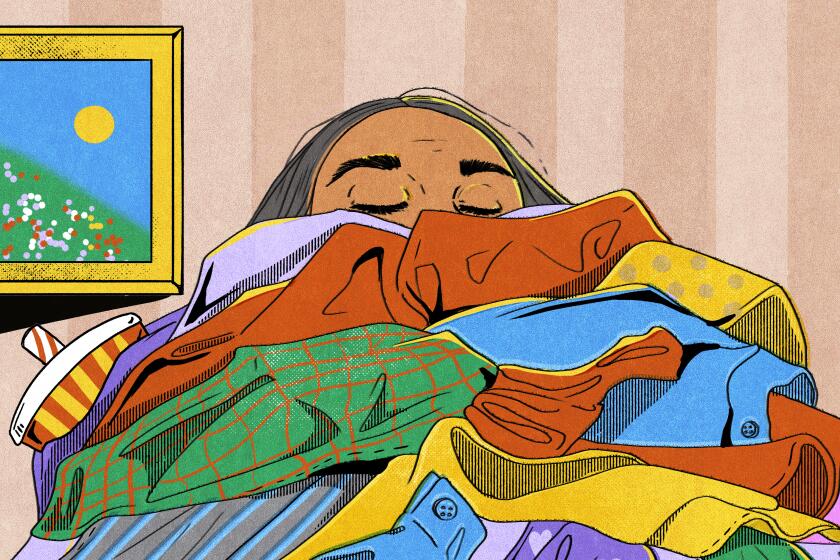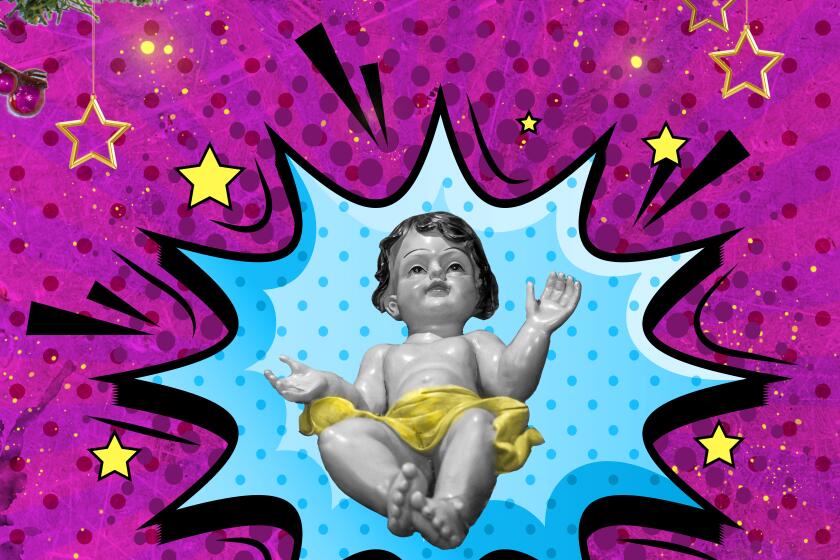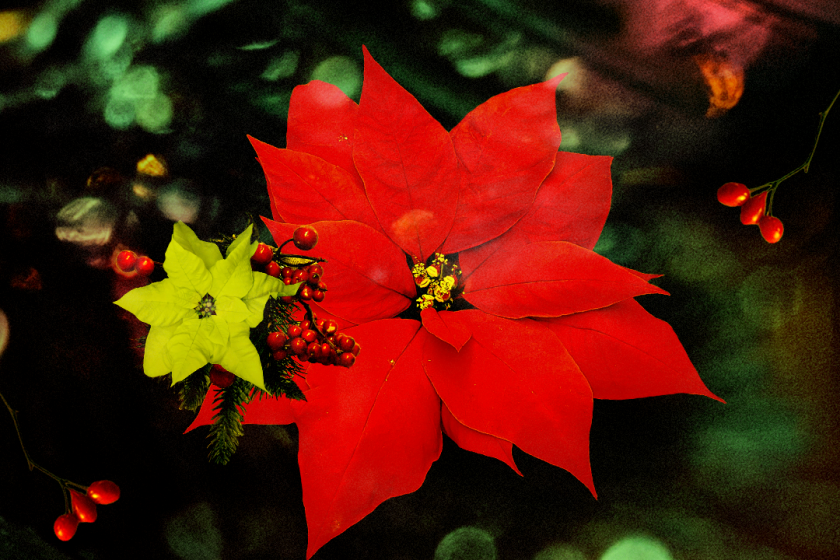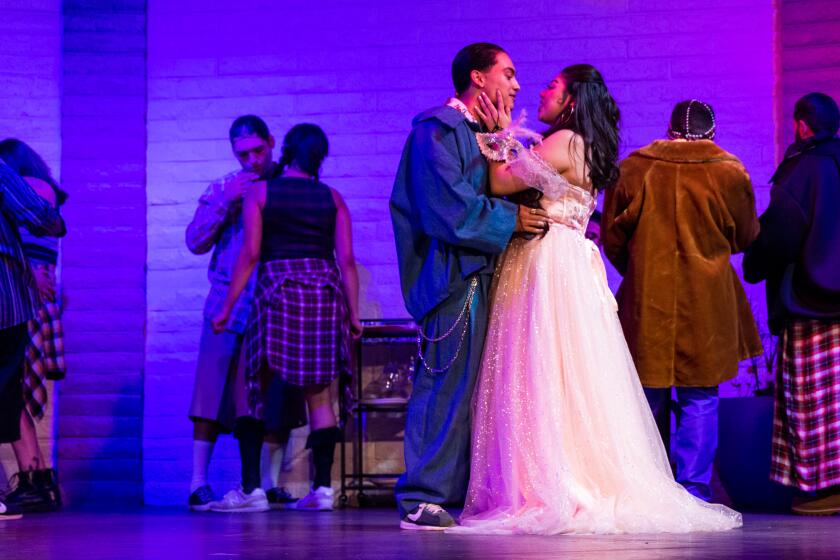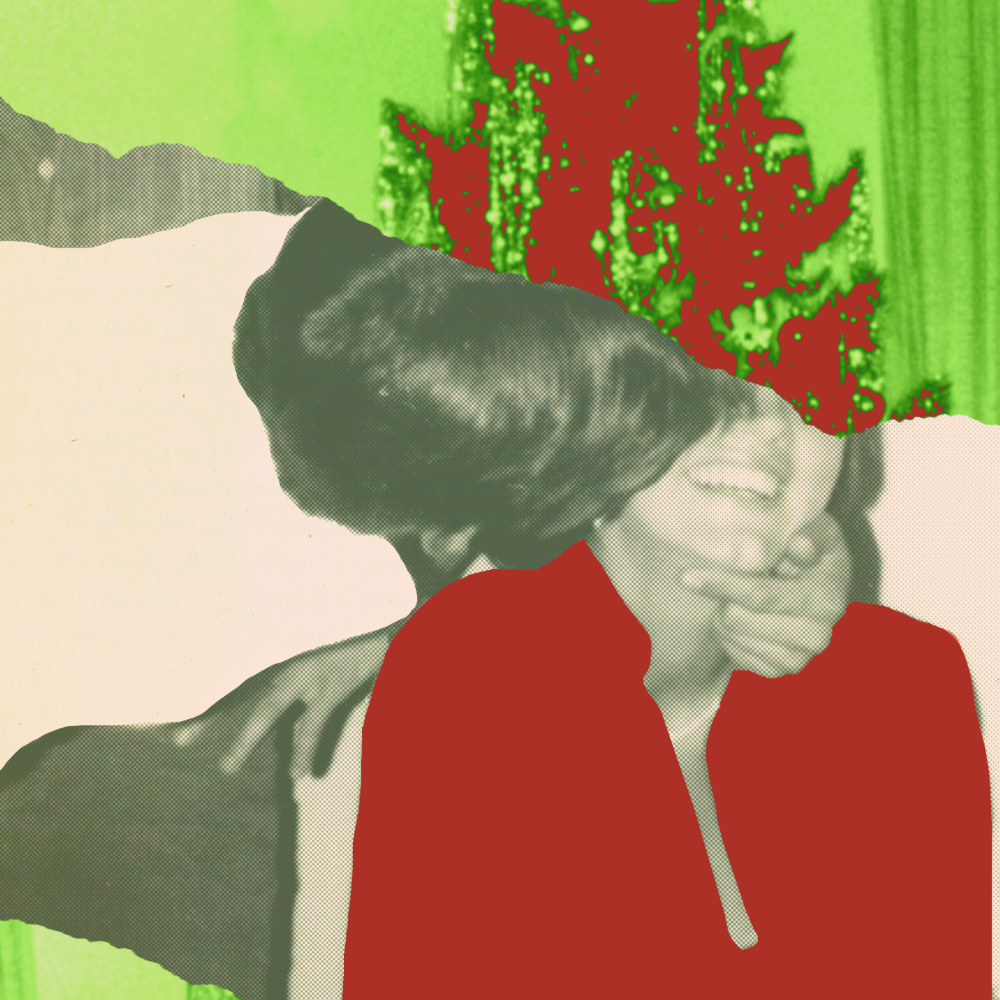
- Share via
Fourteen years ago, on Dec. 3, my dad died inside an emergency room. He had a short but brutally aggressive bout with cancer. I often have to look through my phone’s camera roll to remember what I did even the day before, but every detail of that day is engraved in my memory.
The moment we realized it was time; calling my siblings in L.A. that they had to get home fast; struggling to lift the full weight of his body into a car; crossing him over the U.S.-Mexico border; the sound of my mom’s scream; being escorted to a small room where we could be with his body; everyone freaking out when my dad’s chest let out a deep exhale, hoping for a second maybe there had been a mistake, and the doctor calmly telling us he was really gone. It’s just something the body sometimes does.
How do you compassionately get rid of the things your immigrant parents hold onto that are piling up in their home?
When Christmas came a few weeks later, my family decided to get together, though the gathering was quieter without the big, charismatic figure who’d pour tequila shots and wrap the remote control as a gag gift.
He was there, though. Sort of.
I insisted we bring my dad’s urn. At that time, I made my mom bring his urn everywhere because the thought of leaving him behind was too much, so there was no way “urn dad” was going to miss Christmas.
These days Christmas is much easier, and back to being big and loud, but we always take a moment to toast our dad.
Grief is a daily stomach punch, and the holidays can especially knock the wind out of you. During a time when you’re surrounded by loved ones, you feel the missing parts so much harder, and it can not only change how you celebrate the holidays but the very way you feel during them.
Vanessa Valle, a parent educator in Hemet, lost her grandfather, Pedro, on May 18, 2021. He’d raised her since birth along with her grandmother, garnering him the nickname “Papa” and her the nickname “chiquita linda.”
“His loss took a toll on me and everyone in the family,” Valle said. “He was the glue holding us together.”
The loss of that glue has impacted their holidays.
Learn about Día de las Velitas and why it’s essential for Colombians. Get ready to be surprised by a Puerto Rican asalto navideño or enjoy a glass of cola de mono with your Chilean friends.
“We were always close with each other. My mom, her sisters — we would get together,” she said. “Now that he’s gone, we don’t really do that anymore. Everybody does their own thing. It’s sad that we don’t get to do that anymore.”
Tanya Zepeda lost her sister, Olympia, on Nov. 22, 2022, of complications from deep vein thrombosis that led her to go on life support. Zepeda and her father had to make the difficult decision to end life support.
Olympia’s death came at an already hard time for Zepeda’s family. In 2011, they lost their mother, Nellie, whose birthday is Nov. 23. “Always around Thanksgiving, even before my sister passed away, it would bring back emotions from losing my mom,” the National City resident told me. Those losses have changed the holidays for Zepeda forever. She’s lost the excitement and enthusiasm she once felt, even if she reminds herself that she has her father, her kids and much more to be thankful for.
“I just hope that I start to enjoy it again,” Zepeda said. “I know my sister would want me to enjoy it. She probably would want me to have fun and drink and be happy and laugh and dance. I’ll probably start to enjoy it again, but I’m not there yet.”
Finding joy after a profound loss is something Juan Amaya, a graphic designer in New York’s Chinatown, feels deeply. On Dec. 17, 2021, his best friend, the writer, musician and DJ Davide Gualandi, died of an overdose. Losing his mother to suicide and living alone during the COVID-19 lockdown exacerbated Gualandi’s issues with drugs.
The two spent many Christmases together, having dinner with friends and going out dancing. “We’d spend Christmas together because he didn’t really have a family to visit except his mom and aunt, so he would stay behind with friends. And I couldn’t really get time off to go home,” Amaya told me. “I think of him very often and try to keep his spirit alive.”
After nearly two years of grieving his best friend, Amaya struggled to enjoy music.
“He was a big music lover like me, so everything reminded me of him,” he said. “Especially techno and hardcore, because he became a pretty well-known techno DJ, at least in Brooklyn. I’m still not myself after two years. It changed my life forever.”
Poinsettias are native to North America, specifically areas of southwestern Mexico and Guatemala, but they are not native to the U.S. despite their popularity.
Some of those changes were positive for Amaya. He says he’s more thankful and appreciative of his friends and family. “I wasn’t very nice to my parents growing up and wouldn’t really visit them much, so I try to be around more during this time,” he said. “I stopped being so selfish, and I’m more mindful, for sure.”
Loss is inescapable. We will all grieve for a loss, and over time the list of people we mourn during the holidays and beyond will grow and grow. And one day, your name will be on that list for others. It’s a heart-wrenching, but in many ways beautiful, fact of life.
What a gift to be loved so deeply that you’re a pang in someone’s chest for the rest of their lives.
For Andrew Santiago, an actor and comedian in East Hollywood who grew up in Brooklyn, the holidays have become a “season of loss.” He lost his “titi-mami,” Margarita, his brother and his grandfather, and then, at the beginning of 2021, he lost his beloved grandmother, Lydia, who had raised him as a mother.
“So now, here I am with all these ghosts — all these people who meant a lot to me,” he said. “I go through these cycles every year that my therapist has been trying to help me with for a long time. Some people have seasonal depression because of the weather. For me, I know once October comes, the weather’s a little chilly, and I’m gonna start to miss all these people that meant so much to me. All these holidays are different now.”
As we talk, Santiago tells me he’s looking at a photo album and he realizes something. “There are pages after pages of photos where someone is gone. I’m looking at a photo now with four of us, and I’m the only one left,” he said.
One of the most powerful aspects of this ‘Romeo and Juliet’: Many of the actors aren’t just pretending to be part of rival gangs on the streets of L.A.
But another beautiful thing about loss is how much your loved ones shaped you, so much so that they remain part of you always. Among the many things Santiago’s grandmother gave him over his life was his connection to Puerto Rico.
“My grandmother was Puerto Rico to me,” he said. “She was the entire island to me. Everything I know about Puerto Rico, my ability to speak Spanish, the flavors I enjoy, the food I eat, the music I love — it all came from her.”
Those things have a way of staying alive and eventually passing on, so even when names are forgotten over time, they remain.
Alex Zaragoza is a television writer and journalist covering culture and identity. Her work has appeared in Vice, NPR, O Magazine and Rolling Stone. She’s written on the series “Primo” and “Lopez v. Lopez.” She writes weekly for De Los.
More to Read
The Latinx experience chronicled
Get the Latinx Files newsletter for stories that capture the multitudes within our communities.
You may occasionally receive promotional content from the Los Angeles Times.
